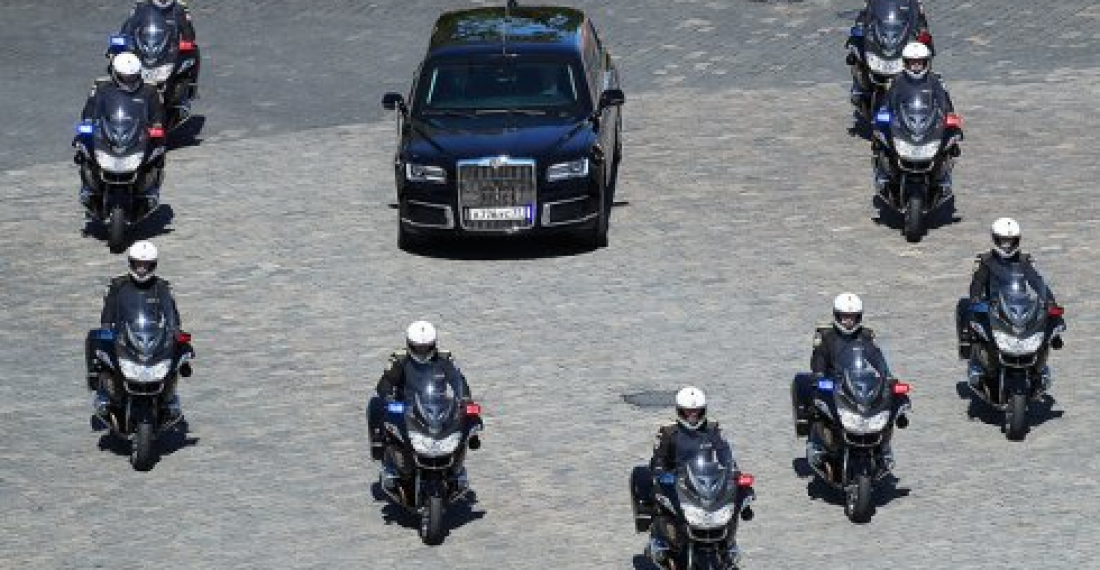Vladimir Putin was sworn in as president of the Russian federation on Monday (7 May). Putin accepted the presidential emblem and took the presidential oath at a ceremony in the St. Andrew Hall at the Grand Kremlin Palace. "We have revived pride in our fatherland," Mr Putin told the 5000 guest assembled for the ceremony. "As head of state I will do all I can to multiply the strength and prosperity of Russia."
Shortly afterwards, Putin put forward the nomination of Dimitri Medvedev to continue serving as prime minister. Medvedev in turn proposed the re-appointment of most of his deputies, indicating that continuity was an important feature of the new president and his team.
There has however been one change. Tass news agency reported that Putin arrived for his inauguration in new Russian-made Cortege limousine. According to the agency Cortege is a project for building a family of cars for senior government officials - a limousine, a sedan, an off-road vehicle and a minivan. Project Cortege car was given new brand name Aurus. The 'rus' in Aurus clearly refers to Russia, whilst 'aurum' is Latin for gold
Immediately after his inauguration ceremony President Putin signed a decree setting Russia's development targets up to 2024, the Kremlin's press-service said. The document sets several goals, which the Russian government should achieve by 2024.
One of the tasks says that "the Russian Federation should join the group of the world's five largest economies, ensure economic growth rates above the world's level while keeping macroeconomic stability, including inflation at no more than 4%".
source: commonspace.eu with TASS and other agencies
photo: President Putin arrived at the inauguration ceremony in a new limousine, escorted by police outriders. (picture courtesy of TASS news agency)






